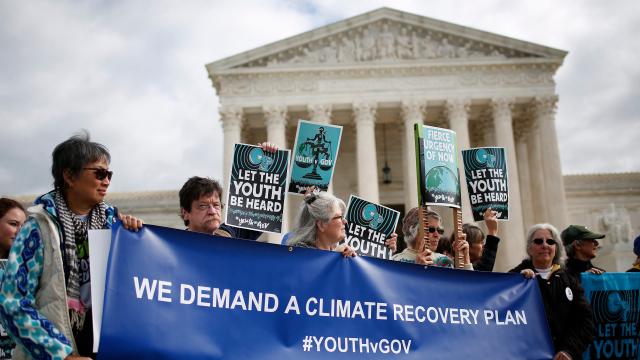Most of the top U.S. law firms are failing the country on the climate crisis.
A report conducted by the newly-formed legal student group Law Students for Climate Accountability, analysed the work of the 100 most prestigious law firms in the U.S. The study is the first to detail the role that leading law firms play in driving the climate crisis by providing legal services that extractive companies require to survive. It shows the majority of them have provided far more support to clients who are driving the climate crisis than clients working to fight it.
The analysis is based on a painstaking look through tens of thousands of records of litigation, financial transactions, and lobbying records from 2015 to 2018. The students identified the firms based on the Vault 100, a national ranking of the top law firms in the U.S.
The resulting report, the 2020 Law Firm Climate Change Scorecard, shows that over the four year period examined, the 100 firms took on 10 times as many lawsuits and five times as many lobbying gigs for coal, oil, and gas corporations than they did for renewable energy ones. The firms also worked on five times as many transactions — including contracts, terminations of contracts, and transfers of rights — for fossil fuel companies than for renewable companies, totaling $US1.3 ($2) trillion of transactions for the fossil fuel industry compared to $US271 ($377) billion of transactions for the renewable energy industry.
Though the firms are by and large playing an indirect yet dangerous role in climate breakdown, the study shows that some of them are doing more to accelerate the crisis than others. When the authors analysed each firm’s litigation, transactions, and lobbying records individually, they gave 26 of the firms an F (including eight of the top 10 firms in the Vault 100), and another 41 of them a D.
Among the firms who received the worst grades were Cravath, Swain, and Moore, which conducted work $US32 ($45) billion to oil giants like Shell. Kirkland and Ellis is another firm that assisted on $US26 ($36) billion worth of transactions. Paul, Weiss, Rifkind, Wharton, and Garrison received and F and ranked as the worst firm on the group’s litigation scale after infamously representing ExxonMobil in climate cases brought by New York, San Francisco, and Oakland.
Of the 100 firms surveyed, only four received A grades. The one that faired the best, Cozen O’ Connor, is known for representing climatologist Michael Mann in legal attacks by a deregulation-loving think tank Koch Industries.
The study comes amid a rising movement to hold banks, insurance companies, asset managers, and other institutions accountable for servicing and financing planetary destruction. The group that authored the new report says those calls should be extended to the legal sector, too.
“While law firms have largely evaded scrutiny for their role in the climate crisis, they are an indispensable pillar of support for the fossil fuel industry,” Tim Hirschel-Burns, a lead author of the report and a second-year student at Yale Law School, said in an email. “Fossil fuel companies depend on the litigation, transactional support, and lobbying conducted by elite law firms.”
In recent years, advocacy groups and municipalities have filed a growing number of lawsuits against energy giants. Without the backing of these prestigious firms, Hirschel-Burns said, the fossil fuel industry would suffer in court.
“Elite law firms wouldn’t be able to charge over $US1,000 ($1,392) an hour if they didn’t provide excellent representation,” he said. “Rescinding their support for the fossil fuel industry would have a tangible impact on emissions. The state and local governments and the public interest organisations that take on fossil fuel companies would not have to overcome an army of lawyers in order to protect the planet.”
